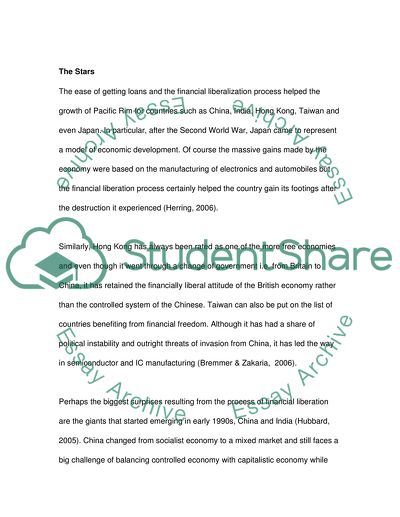Cite this document
(“Developing Countries and Financial Liberalization Essay”, n.d.)
Developing Countries and Financial Liberalization Essay. Retrieved from https://studentshare.org/finance-accounting/1538707-should-developing-countries-engage-in-financial-liberalization-what-role-do-you-see-for-capital-controls
Developing Countries and Financial Liberalization Essay. Retrieved from https://studentshare.org/finance-accounting/1538707-should-developing-countries-engage-in-financial-liberalization-what-role-do-you-see-for-capital-controls
(Developing Countries and Financial Liberalization Essay)
Developing Countries and Financial Liberalization Essay. https://studentshare.org/finance-accounting/1538707-should-developing-countries-engage-in-financial-liberalization-what-role-do-you-see-for-capital-controls.
Developing Countries and Financial Liberalization Essay. https://studentshare.org/finance-accounting/1538707-should-developing-countries-engage-in-financial-liberalization-what-role-do-you-see-for-capital-controls.
“Developing Countries and Financial Liberalization Essay”, n.d. https://studentshare.org/finance-accounting/1538707-should-developing-countries-engage-in-financial-liberalization-what-role-do-you-see-for-capital-controls.


